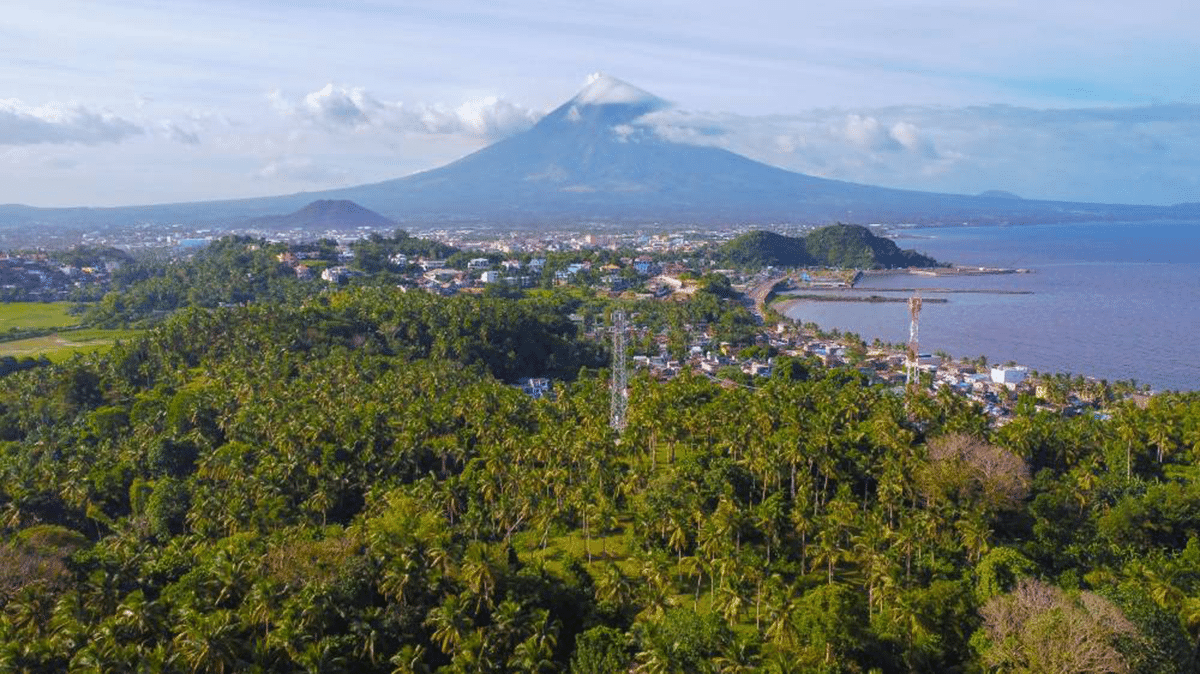
MAJESTIC BUT DANGEROUS. Mount Mayon towers above Legazpi City, the provincial capital of Albay and the regional center of Bicol, belying the danger that lurks on its slopes as the volcano remains restive. This photo was taken on Sept. 26, 2024. — MARK ALVIC ESPLANA
MANILA, Philippines — The Philippine Institute of Volcanology and Seismology (Phivolcs) on Sunday warned Albay province of possible lahar due to heavy rainfall caused by the shear line.
According to Phivolcs, heavy rainfall may generate “volcanic sediment flows or lahars, muddy stream flows or muddy run-off in rivers and drainage areas” at Mayon Volcano.
“Prolonged and heavy rainfall may generate post-eruption lahars on major channels draining Mayon Volcano by incorporating loose material from remnant pyroclastic density current deposits from the January to March 2018 eruption,” the agency said in its 3:30 p.m. advisory.
Phivolcs defines a pyroclastic density current (PDC) as mixtures of hot fragmented volcanic particles, gases, and ash that rush down the volcanic slopes or rapidly outward from a source vent at high speeds.
The agency said the bulk of erodible PDC deposits occupy the watershed areas of the Miisi, Mabinit, Buyuan, and Basud Channels in Albay.
Phivolcs also warned that lahar from Mayon Volcano could threaten communities downstream of the identified channels, potentially causing inundation, burial, and washaways.
“Older and erodible eruption deposits that occupy the watershed areas on the eastern and western slopes of the edifice and can be remobilized as non-eruption lahars by erosion of banks and channel beds,” it added.
Phivolcs reported that potential lahars and sediment-laden streamflows may occur along the following Albay channels:
- Miisi
- Binaan
- Anoling
- Quirangay
- Maninila
- Masarawag
- Muladbucad
- Nasisi
- Mabinit
- Matanag
- Basud
- Bulawan
Phivolcs advised residents and local government units in the identified risk areas to continuously monitor weather conditions and take preemptive measures to ensure their safety due to the ongoing effects of the shear line.
READ: Pagasa forecasts rainy weather for Sunday in most parts of the country